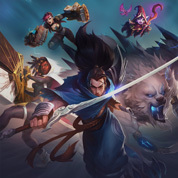
Losing sucks. Like getting killed early with headshots or losing your base (and a sure-win) ranked match via an enemy segue. Nobody wants to lose for it leaves a bad taste in one’s mouth. On the other hand, players all want to win, reach the highest rank, and get the grandest rewards. To get the best of both worlds, some, like those into competitive gaming, turn to boosting.
Boosting is defined as the unethical practice of artificially increasing the competitive rank of a low-ranked player. It involves amplifying a player’s leaderboard, rank, or winning record in an intentional or unfair manner. Oftentimes, a higher-ranked player will agree to play someone else’s account (lower-ranked) and join that player’s team in exchange for payment or other compensation.
Let’s try and break down how boosting works and its implications in the gaming ethos.

How does boosting work?
Playing video games takes time and effort — a lot of both if you want to reach the highest rank or dream of becoming a pro gamer. But we all know that not everyone can reach that caliber.
One of the things that boosting does is that a high-level player can guarantee (or give higher chances) of earning wins. Several high-rank players create Smurf accounts (an alternative low game account used by an experienced player, posing as someone less experienced) to help their low-level friends.
By winning more games, a boosted account can acquire numerous achievements and awards that they would otherwise find extremely difficult to obtain. Other perks include better in-game inventory, weapons, titles, and prestige.
Boosting also happens in team-based Esports titles where a high-ranked player opts to play with a low-ranked player to increase the possibility of the lower-ranked player winning the match, therefore increasing their ranking much faster.
How does it affect games and players?
Winning is the ultimate goal of playing. It’s the reward for all the intense thumb-tapping, joystick abusing, and shouting matches. To get the competitive advantage without going through great lengths to cheat is not a bad thing right? However, other players still see boosting as cheating, and gaming companies do not tolerate it.
One patent effect of boosting is that it disrupts the matchmaking balance of the game (in MOBA of FPS for example). Many will argue that matchmaking on several games is still sub-par, but it’s a main game component that levels the playing field. The algorithm may not work fairly at all times but it is designed to balance the pairing process.
When boosting occurs, accounts of generally low skilled players can get easy wins. It puts their win:loss ratio at par with teams that are actually performing well. And when a boosted account gets paired with players who are actually striving for better performance, chances are they will have a higher probability of losing. Boosting affects the ELO Rating system, a method for calculating the relative skill levels of players in zero-sum games like chess.
If you win more games using a boosted account, you get better rewards. This manipulation lets you gain an advantage in the prize pool. When the mechanics dictate that the best performer gets better rewards, a boosted account takes the upper hand compared to players with similar skills playing by the rules.
A dark side of boosting has become serious that gaming companies have continuously employed ban waves to cut down the unfair practice. It’s one of the reasons why game developers have constantly revamped their ranking system. Thousands of players have faced stiff consequences of boosting and went as far as having their game accounts completely banned and totally worthless.
Boosting is like plagiarism. You pass off your current rank in lieu of the work of others. It’s playing at a higher ranking than your actual skill would suggest otherwise. It’s only a matter of time before you get called out for it.
Don’t forget to top up on favorite games only at Codashop. We guarantee faster and more convenient top-ups so you can enjoy a hassle-free gaming experience.

























